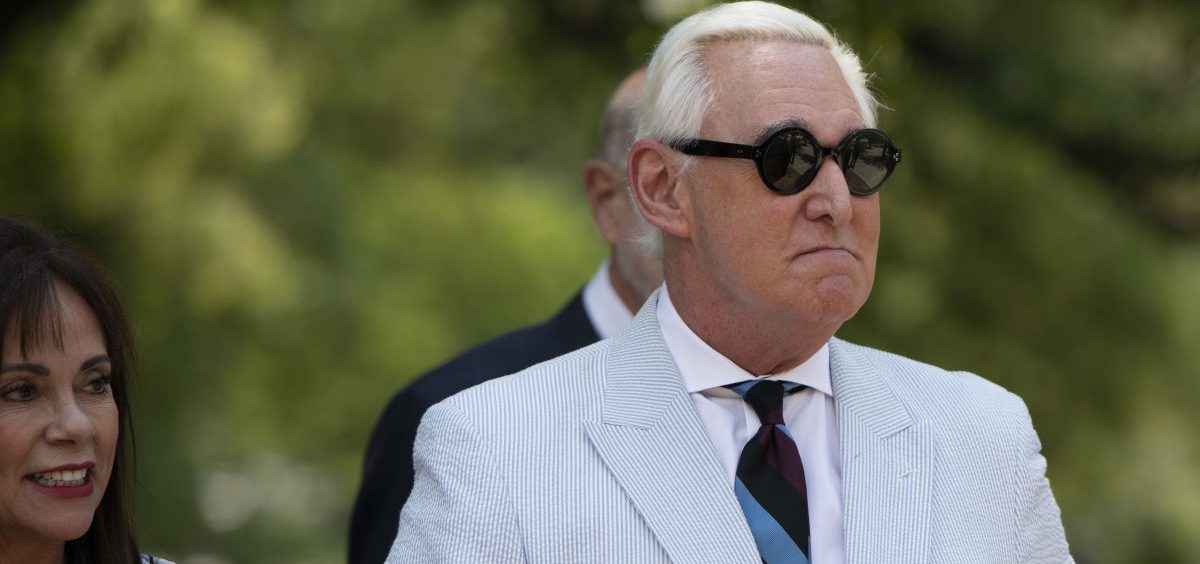News

Roger Stone Barred From Using Social Media As Judge Tightens Gag Order
By: Ryan Lucas | NPR
Posted on:
A federal judge on Tuesday barred President Trump’s longtime informal adviser, Roger Stone, from posting on Instagram or other social media platforms through the end of his trial.
Judge Amy Berman Jackson concluded that Stone had violated an earlier gag order with a series of social media posts and media contacts over the past several months.
“Mr. Stone, what am I supposed to do with you?” Jackson said during a more than two-hour hearing. “Whether the problem is you can’t follow simple orders or won’t, I need to help you out.”
The answer, Jackson said, is to expand the previous conditions of release and the gag order that barred Stone from discussing his case or its participants in public or online.
Stone has pleaded not guilty to obstruction, false statements and witness tampering, and is scheduled to go on trial in November. The case against him was brought by former special counsel Robert Mueller’s office, but is now being handled by the U.S. Attorney’s Office for the District of Columbia.
At Tuesday’s hearing, Jackson summarized the history of the restrictions she has placed on Stone and the lawyers in the case. She noted that Stone’s attorneys have not raised any First Amendment or other objections to the gag order she imposed in February.
The order, she said Tuesday, is “clear as day.”
Over the course of an hour, Jackson went through a long list of instances in which Stone allegedly violated the court’s gag order with posts on social media posts or contacts with the media.
Those include a statement to BuzzFeed alleging that some of Michael Cohen’s congressional testimony was a lie. They also included a series of posts on Stone’s Instagram account, including one related to public filings in his case and another criticizing the top Democrat on the House intelligence committee, Rep. Adam Schiff of California.
The criminal charges against Stone relate to his testimony before that committee, which was investigating Russia’s interference in the 2016 election.
The defense: It was mostly just reposts
Stone’s attorney, Bruce Rogow, argued that none of the examples put forward by the government violate the court’s order that Stone not discuss the case or its participants publicly. Many of the posts, Rogow said, amount to nothing more than Stone reposting someone else’s statement.
“It’s not a Roger Stone statement,” he said. “He’s republishing it.”
Jackson pushed back. “Isn’t that how Instagram and Twitter work?” she said. “That’s the power of it, the speed of it, the multiplication of it.”
Rogow pivoted to the question of whether the posts could taint the jury pool, which he said was the reason the gag order was imposed in the first place.
“None of these are the kind of things that have any reasonable basis to believe it will infect a fair trial,” he said, arguing that none of Stone’s Instagram posts got much traction online.
Assistant U.S. Attorney Jonathan Kravis disagreed.
“We believe the most recent posts clearly demonstrate a present risk to a fair trial and demonstrated that he’s not able to follow the [gag] order,” Kravis said.
Asked by Jackson what he would recommend she do, Kravis said he thought the judge should at a minimum clarify the previous gag order. He also suggested prohibiting Stone from using social media completely. The government did not, however, recommend that Stone be jailed pending trial.
Ultimately, Jackson ruled that Stone’s posts had indeed violated her gag order.
“To suggest the posts aren’t statements about the case ignores the power of social media,” Jackson said. “Maybe his lawyers don’t understand it, but he does.”
The obvious purpose behind Stone’s use of social media, she said, “is to gin up more public comment and controversy about the legitimacy of the Mueller investigation, the House investigation, to get people to question the legitimacy of this prosecution.”
In the end, Jackson barred Stone from using Instagram, Facebook and Twitter through the end of his trial. His behavior so far, she said, has “more to do with middle school than with a court of law.”
His ban from social media includes no forwarding, re-posting, retweeting or liking. All of the previous restrictions barring him from publicly discussing the case still remain in place.
9(MDI4ODU1ODA1MDE0ODA3MTMyMDY2MTJiNQ000))

